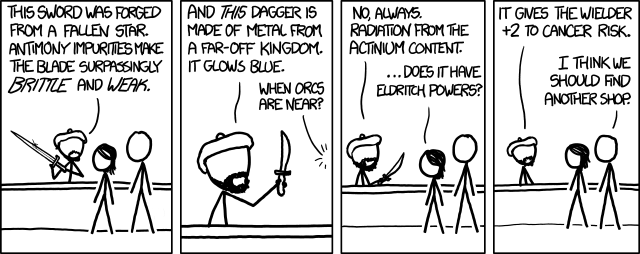I can't respond to the BG2 comment (except to say again to say if BG2's such a major approvement I'm regretting listening to people telling me to play through 1 first), but Sigil was both alien and living- it's not a case of one for the other, and it both it and its citizens would not have been as interesting and fascinating as they were without the city's otherwordliness and set-up- certainly not if they'd be from, say, Baldur's Gate or Neverwinter, where the most 'stereotypical' society would have robbed them of much of their colour.
Telling you to play through BG1 is a horrible advice. BG1 didn't age well at all - Not from a technical standpoint, but from a game design one. As you said, many parts of the game were left horribly undeveloped... But BG2 rectified that.
Sigil was living, but you were not part of it. Much of its inhabitants operated on logic there was at least partially alien to you and you never really felt like Sigil was somewhere you belonged - It was weird, beautiful and dangerous. The citizens fascinate you, mostly, through the superficial (which is not bad, it's actually very cool). But this is very different than Athkatla, there it fascinate yo on a deeper level because many of its inhabitants are interesting human beings.
And I agree that it's not a case of one or the other, but there is a trade-off here. You cannot create a world of utter weirdness and alien customs and explore it to the same depth you explore the mundane. And neither one is better than the other, it's just a matter of choice.
You're right about Nordom, but I think you keep mentioning him because it helps your point

. Annah, Morte and Fall-From-Grace are much more familiar characters, and the setting doesn't stand in the way in these cases.
These character
are better, they did a great job with them, but there are much less of these characters in PS:T that in BG2. Even Dak'kon, one of the more developed characters in PS:T, suffered a little from the strangeness in terms of depth.
You get to know them very well through dialogue. You can enter Torment having no idea what a githzerai and tanari'i are and end up having a very clear idea of what they're all about through your extensive dialogues with Dak'kon, Fall-from-Grace with her succubus upbringing, and so on.
I'm not sure how the setting is "too distracting" when the backstories of the characters play directly into the setting; it's all intertwined. Dak'kon tells you all about the Limbo plane he comes from (a story which ends up connecting directly to the Nameless One), Nordom with Mechanus, etc. Countless characters big and small relate to you their feelings about Sigil and their particular relationship to it. The whole planewalking element plays heavily into character relationships with the Nameless One so it isn't just window dressing. You end up finding out that you're responsible for a lot of the circumstances surrounding them.
You have to talk to these people to get to know them. The game doesn't just present you with some character you can instantly relate to and deduce from their appearance, dialogue style, etc. With Nordom, you should have quite a good idea of what he's about even before meeting him from having talked to other characters about the highly orderly and logical plane of Mechanus, and you also meet Modrons before ever encountering Nordom. Even if that wasn't the case, simply speaking to and questioning the guy will divulge ample information.
No, you learn about them right there, you don't know them, and some of them (like Nordom) are alien enough to warrant a very long introduction. You can't deeply explore something you just learned about.
And the fact they weaved these stories together doesn't help in term of depth I was talking about... No character in PS:T goes through the things the characters in BG2 are going through, they couldn't afford to deal with those in that type of game. The extent of the human relationships in a familiar setting is simply much greater - This should be fairly obvious. When you have overwhelming concepts, anything you add on top on them tends to become noise.

